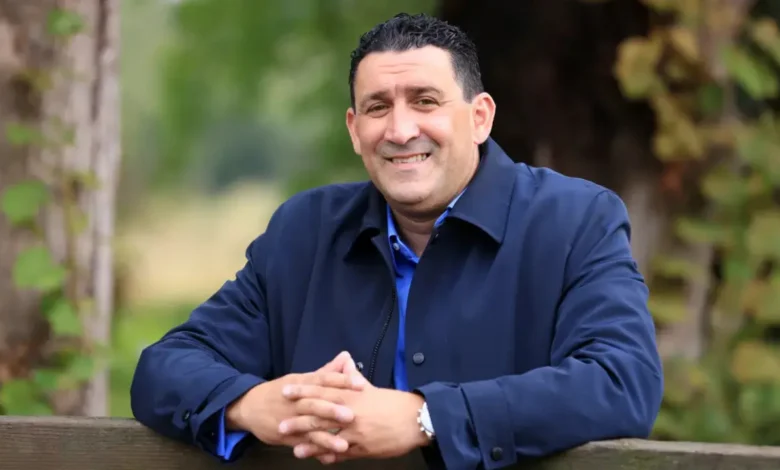Stephen Gillen: From Shadows to Spotlight

Few stories are as arresting—or as redemptive—as that of Stephen Gillen. He is a man who moved from the darkest corners of crime into the light of transformation, advocating hope where once he dealt in fear. His journey is raw, compelling, and ultimately inspiring. In this article, we’ll explore the life of Stephen Gillen, weaving his story into a narrative that captures the tension of his past, the pivotal moments of change, and the meaningful work he pursues today.
The Early Life of Stephen Gillen
Born in the UK but spending parts of his childhood in Belfast during an era of intense conflict, Stephen Gillen’s early years were shaped by trauma and instability. From being moved between care homes to witnessing violence at a young age, he was exposed to the raw edges of society long before most children. This upbringing set the stage for a path that would tilt toward danger, rebellion, and eventually survival.
At a young age, he gravitated toward the underworld of East London—drawn in by the sense of belonging, of power, of belonging somewhere larger than the name he carried. Such environments don’t create themselves; they attract those who feel unseen. And the early Stephen hit heavy ground. His first run-in with the law happened when he was still a teenager. Before long, the lifestyle consumed him: the guns, the heists, the notoriety. He became part of a ruthless world of organised crime.
The Descent: Life in Crime
It is difficult to imagine the full weight of what it meant for Stephen Gillen to exist within that world. He has admitted that his first gun came into his life when he was barely a man. He operated in a space where loyalty meant violence, respect could mean fear, and escape often meant death. He was once labelled one of the UK’s most dangerous prisoners—his crimes included conspiracy to rob, firearms to endanger life, and more.
In that landscape of crime, the thrill was intoxicating. Stephen has said that the rush of being out-lawed was seductive, but that it was all built on a foundation of fear. Fear of being powerless, of being ignored, of being cheated by life. The underworld offered him status—and he accepted it. When your world is chaos, even a little control can feel like salvation.
Life Behind Bars and the Turning Point
When the law caught up with him, Stephen Gillen was sentenced to a lengthy term in high security. He served many years as a “Category A” prisoner—a classification reserved for those deemed highly dangerous. The experience of prison is often portrayed in films, but the truth is harsher, lonelier, and far more introspective. In that darkness something changed.
Gone were the street turf wars and glamorous criminal plans. In came the weight of regret, the facing of consequences, and the slow surfacing of what his life might have been. While incarcerated, Stephen met infamous inmates, was exposed to extreme conditions, and finally confronted the emptiness of his trajectory. It was in those bleak surroundings that the seeds of redemption were planted.
Stephen Gillen: Rewriting the Narrative
Once he emerged from prison, Stephen Gillen made a radical pivot. He refused to let his past define him. Instead he transformed it into fuel for something better. He became an entrepreneur, a media producer, an author, and a motivational speaker. His book became a bestseller, his story an example. He now leads a media-company, works on television and film projects, and uses his experience to help others avoid the pitfalls he succumbed to.
What makes this transformation striking is not just the change in ambition, but the change in purpose. The teenager who chased danger became the man who sought to dismantle it. He shifted from accumulation and aggression toward healing and reconstruction. Many might applaud the change; few execute it with the depth and authenticity he demonstrates.
Why His Story Resonates
There are many reasons why Stephen Gillen’s journey strikes a chord. First, because it’s raw and unglamorous. He hasn’t sugar-coated the misery, the desperation, the cruelty. His story reminds us that redemption rarely arrives in tidy packages—it comes through grit, regret, willingness to face self, and the willingness to build anew.
Second, because it speaks to the power of grounds—how environment, upbringing, and early socialisation can direct a person’s path. Stephen’s early life was not enviable; it was a launching pad into danger. But he didn’t remain captive to that past. His story suggests that though one’s past shapes them, it does not have to define them.
Third, because we live in a time when society often divides people into “good” and “bad”. Stephen’s narrative breaks that binary. He was once deeply involved in crime; now he helps prevent it. He bridges worlds. That kind of journey invites us to consider empathy, second chances, and the fact that people are capable of enormous change.
The Impact and the Work Today
Today Stephen Gillen directs his energy toward several fronts: media production – including film and television projects informed by his life; community engagement – working with young people at risk; and motivational speaking – sharing his journey as a warning and a beacon. He is also involved in branding and business development, showing that a transformed individual can succeed in constructive enterprises, not just be redeemed but thrive.
Through his narrative work, his book, and his speeches, Stephen harnesses the very trauma he endured and the sins he committed, and offers them back as a resource for insight. He stands in front of audiences and declares: You can change. I changed. It’s not easy—but it’s possible. By doing so he transcends his own story and becomes a symbol.
Lessons We Can Learn
What can each of us take away from the life of Stephen Gillen? Several lessons are unmistakable:
- Identity is Dynamic: You may be known by your worst chapter, but you don’t have to be defined by it forever.
- Purpose Over Pleasure: Seeking thrills might mask deeper needs—purpose, belonging, respect. When those needs are met in healthier ways, the destructive uses fade.
- Environments Matter: John Locke’s “nurture” principle plays out in real terms here. When placed in environments of violence and abandonment, children may lean into survival models that become maladaptive. Awareness matters.
- Transformation Requires Action: Having a change in heart is necessary, but transformation shows in what you do afterward. Stephen built new structures: business, book, media, support.
- Sharing the Story Helps Others: His work isn’t just self-redemption—it’s service. By showing others his path, he gives them alternatives.
Challenges and Authenticity
It’s worth acknowledging: change is neither simple nor permanent. Stephen Gillen himself has spoken of relapse risks, of the pull of the old life, of the ghosts that followed him through prison and beyond. Acknowledge these shadows does not reduce the triumph—it amplifies it. The fact that he kept going, kept building, kept speaking, gives authenticity to his message. Real transformation doesn’t erase past mistakes—it learns from and rises above them.
In his public presentations he doesn’t pretend the journey was painless. He acknowledges regret, loss, and responsibility. That’s what makes his story compelling—he owned the darkness and used it as a tool for light.
What the Future Holds
Looking ahead, Stephen Gillen continues to expand his influence. Film and TV projects based on his life are in development; his company is building media content; his public speaking reaches global audiences. Yet the core remains the same: using his story to intervene before harm, to promote change, to offer possibility.
For many young people in disadvantaged circumstances, his life is more than inspiration—it is a roadmap. And for those who assume someone with a criminal past is irredeemable, his life is a counter-example. He is proof that change is messy, real, and worth the effort.
Conclusion
The story of Stephen Gillen is not just about one man’s fall and rise—it is about the human capacity to evolve, to rebuild, to redeem. His name stands for something deeper than notoriety: it stands for resilience, purpose, and change.
We live in times when headlines often focus on the sensational. But underneath the noise lives a powerful truth: people break, but people can also rebuild. Stephen Gillen’s life acts as a mirror, reflecting both the fragility of human choices and the strength of human transformation.
When we remember his journey—from youth adrift, to criminal ascent, to prison, to rebirth—we are reminded that greatness isn’t always loud. Sometimes greatness is quiet, consistent, rooted in the decision to turn toward the light when the darkness is overwhelming.
Stephen Gillen’s story invites us to ask: if one life can change this drastically, what about mine? If a past filled with violence can become a future filled with purpose, what about our communities, our families, our choices?
And so we close not with the end of his journey, but with the continuation of ours. In the life of Stephen Gillen we find a possibility—that no matter where you’ve been, you are not bound forever. You still have time, you still have choice, you still have power. Let that be our takeaway: that transformation, while rare, is real—and maybe just one decision away.





